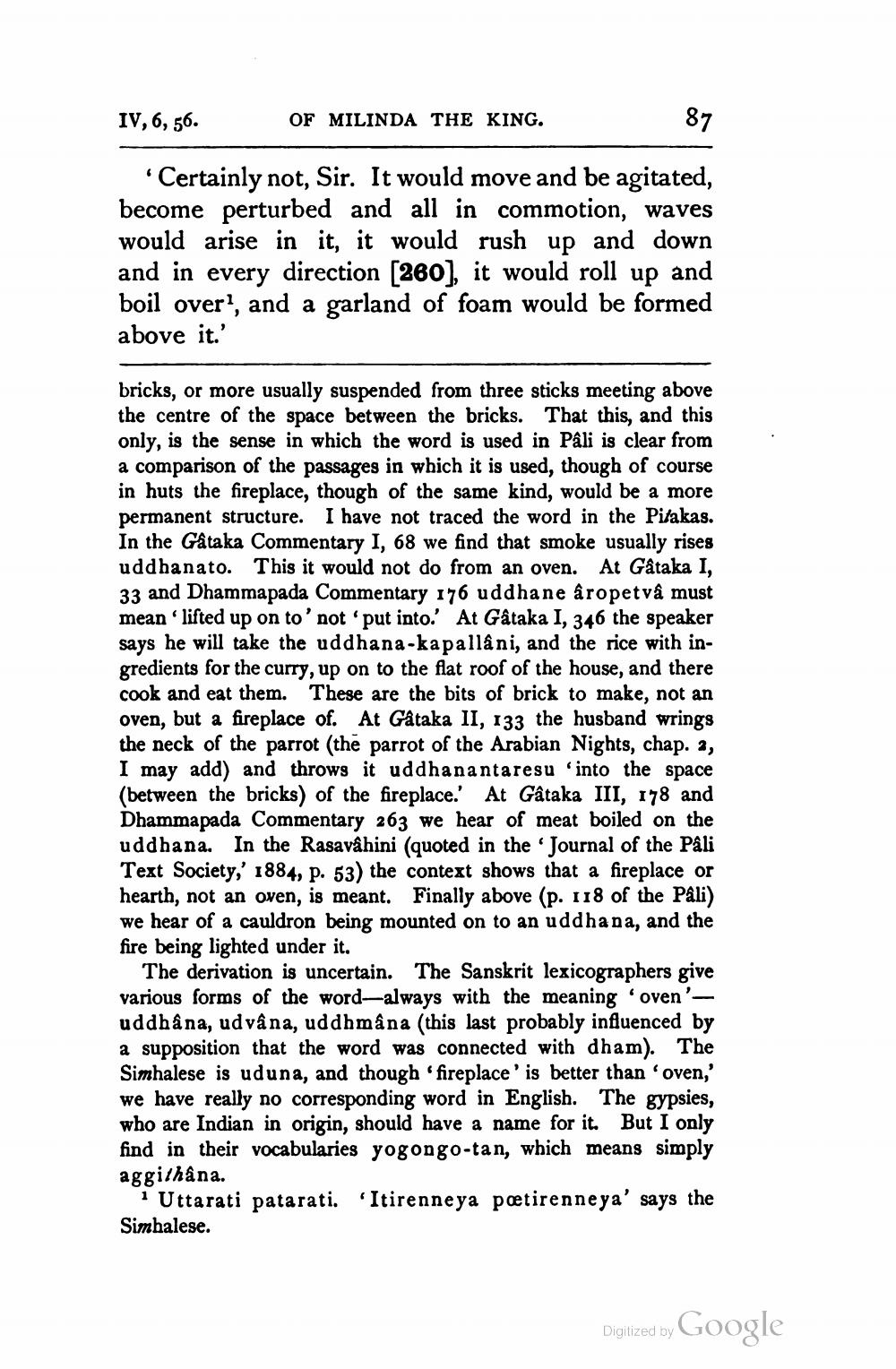________________
OF MILINDA THE KING.
IV, 6, 56.
'Certainly not, Sir. It would move and be agitated, become perturbed and all in commotion, waves would arise in it, it would rush up and down and in every direction [260], it would roll up and boil over1, and a garland of foam would be formed above it.'
87
bricks, or more usually suspended from three sticks meeting above the centre of the space between the bricks. That this, and this only, is the sense in which the word is used in Pâli is clear from a comparison of the passages in which it is used, though of course in huts the fireplace, though of the same kind, would be a more permanent structure. I have not traced the word in the Pitakas. In the Gâtaka Commentary I, 68 we find that smoke usually rises uddhanato. This it would not do from an oven. At Gâtaka I, 33 and Dhammapada Commentary 176 uddhane âropetvâ must mean 'lifted up on to' not 'put into.' At Gâtaka I, 346 the speaker says he will take the uddhana-kapallâni, and the rice with ingredients for the curry, up on to the flat roof of the house, and there cook and eat them. These are the bits of brick to make, not an oven, but a fireplace of. At Gâtaka II, 133 the husband wrings the neck of the parrot (the parrot of the Arabian Nights, chap. 2, I may add) and throws it uddhanantaresu 'into the space (between the bricks) of the fireplace.' At Gâtaka III, 178 and Dhammapada Commentary 263 we hear of meat boiled on the uddhana. In the Rasavâhini (quoted in the 'Journal of the Pâli Text Society,' 1884, p. 53) the context shows that a fireplace or hearth, not an oven, is meant. Finally above (p. 118 of the Pâli) we hear of a cauldron being mounted on to an uddhana, and the fire being lighted under it.
The derivation is uncertain. The Sanskrit lexicographers give various forms of the word-always with the meaning 'oven'uddhâna, udvâna, uddhmâna (this last probably influenced by a supposition that the word was connected with dham). The Simhalese is uduna, and though 'fireplace' is better than 'oven,' we have really no corresponding word in English. The gypsies, who are Indian in origin, should have a name for it. But I only find in their vocabularies yogongo-tan, which means simply aggi/hâna.
Uttarati patarati. 'Itirenneya poetirenneya' says the Simhalese.
Digitized by
Google




